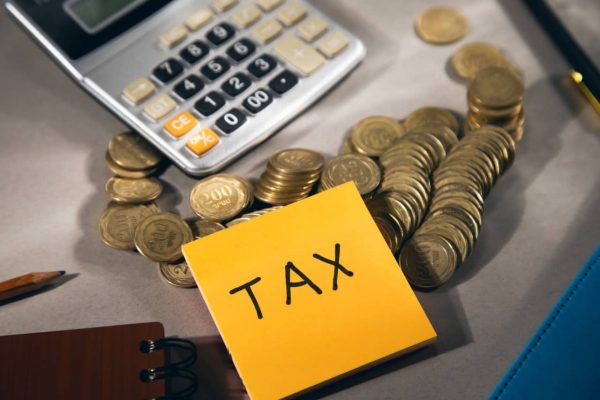Who Needs To Pay Income Tax In Singapore?
According to the Inland Revenue Authority of Singapore (IRAS), all income-earning individuals should pay their yearly income taxes. For the year of assessment (YA) 2022, you must pay for all income earned in 2021. However, you do not need to pay tax if you are exempted under the Income Tax Act or an Administrative Concession.
Individuals required to pay for any particular Year of Assessment (YA) are those who
1. Receive income from
- Full-time job
- Business As A Sole Proprietor
- Freelance job
- Investments in Singapore
2. Work outside Singapore but has an employment status under Singapore.
3. Earn a gross annual income of S$22,000 or more.
4. Earned a net profit of S$6,000 from your business.
5. Are Singapore Citizens (SCs) and Singapore Permanent Residents (SPRs) (except for temporary absences).
6. Are foreigners who derived income from Singapore during their stay (refers to the year preceding the YA for payment).
If you have received a letter or SMS that you have been selected for no-filing service (NFS), you are not required to file an income tax return. Self-employed persons (SEPs) may also be selected for NFS if you are under the pre-filling scheme for SEPs. This applies to those with gross commissions of S$50,000 or less.
What Counts As Taxable Income?
Generally, taxable income pertains to income accrued or derived from Singapore. Income received in Singapore from outside the country is not taxable, except if
1. Income is received through partnerships in Singapore.
2. Your overseas employment or travel is part of your job requirement in a Singapore-based company.
3. You have a business in Singapore and carrying on an overseas business that is incidental to your business.
4. You are employed overseas on behalf of the Singapore government.
- You will only be taxed in Singapore if there is a Double Taxation Agreement (DTA) between Singapore and the foreign country where you are deployed.
- There is a provision for reciprocal exemption by Singapore and the foreign government.
- Apply for double taxation relief to avoid being taxed twice.
In Singapore, taxable income refers to
1. Employment income
2. Profits from doing trade or business
3. Income from profession or vocation
4. Income from investments such as interests or rental income
5. Income received in the form of government grants
6. Royalties
7. Income in the form of digital currencies
The tax payable or the amount of tax you need to pay is based on your chargeable income. This is income after subtraction of deductions which could be:
- Expenses
- Capital allowances
- Tax relief

How Much Tax Should You Pay?
Singapore income tax is based on a taxpayer’s income bracket on a progressive structure. Additionally, your personal income tax rates also depend on an individual’s tax residency status. Thus, to know one’s personal income tax liability, start by determining their tax residency, chargeable income, and applying the progressive rate.
Tax Rates
Resident Tax Rates
| Chargeable
Income |
Resident | |
|---|---|---|
| Rate (%) | Gross Tax Payable ($) | |
| a. First S$20,000
Next S$10,000 |
–
2 |
–
200 |
| b. First S$30,000
Next S$10,000 |
–
3.5 |
200
350 |
| c. First S$40,000
Next S$40,000 |
–
7 |
550
2,800 |
| d. First S$80,000
Next S$40,000 |
–
11.5 |
3,350
4,600 |
| e. First S$120,000
Next S$40,000 |
–
15 |
7,950
6,000 |
| e. First S$160,000
Next S$40,000 |
–
18 |
13,950
7,200 |
| f. First S$200,000
Next S$40,000 |
–
19 |
21,150
7,600 |
| g. First S$240,000
Next S$40,000 |
–
19.5 |
28,750
7,800 |
| h. First S$280,000
Next S$40,000 |
–
20 |
36,550
8,000 |
| i. First S$320,000
Next S$40,000 |
–
22 |
44,550 |
Non-Resident Tax Rates
| Income Type | Rate (%) |
|---|---|
| Director’s Remuneration | 22% |
| Income from being a non-resident professional* | 15% of gross or
22% of net |
| Other Income like rental income from Singapore property | 22% |
| SRS withdrawal by a non-citizen SRS member | 22% |
| Interest | 15% of reduced final withholding tax
or 22% if not applicable |
| Royalty | 10% of reduced final withholding tax
or 22% if not applicable |
| Pension | 22% |
*Non-residents who stayed in Singapore for not more than 60 days are exempt for tax. On the other hand, those who stayed for 61 days to 183 days will be taxed at 15%.
For easier computation, you can use the income tax calculator from the IRAS website.
Tax Relief and Deductions
In Singapore, deductions and tax reliefs can help lower your taxable income. Resident and non-resident taxpayers who stayed in Singapore for work for more than 183 days may be able to qualify for these.
Deductions
- Charitable contributions. You may claim a 250% deduction for qualifying donations.
- Life insurance premiums. Total deduction is restricted to S$5,000.
- Mortgage. Mortgage interest is deductible when property yields income.
- Subscription fees. Payments can also be deducted if the subscription is relevant to employment duties.
- Pension contributions. SCs and SPRs are allowed a deduction for contributions to CPF or other pension funds subject to limits and conditions.
Tax Reliefs
Total personal income tax relief is capped at S$80,000 for each Year of Assessment. Below are the tax reliefs that you may claim.
- Earned income relief. This relief is automatically granted based on your eligibility. The amount is based on age, and taxable earned income.
| Taxpayer’s Age
(as of Dec. 31 of the previous year) |
Maximum Amount Claimable | |
|---|---|---|
| (Regular)
|
(Handicapped) | |
| 54 and below | S$1,000 | S$4,000 |
| 55 to 59 | S$6,000 | S$10,000 |
| 60 and above | S$8,000 | S$12,000 |
Note: If the taxable amount is lower than the maximum claimable amount, relief will be capped at the taxable amount.
- Spouse relief. Relief of S$2,000 provided spouse lives with the taxpayer, and annual income is S$4000 and below.
- Handicapped spouse relief. Relief of S$5,500 relief for the maintenance of a handicapped spouse. There is no income threshold for the claim of this relief.
- Child relief. S$4,000 for each child aged below 16. Annual income should not be more than SS$4,000.
- Handicapped child relief. S$7,000 relief for the disabled child; no income threshold.
- Working mother’s child relief. Computed based on mother’s income; 15% for the first child, 20% for the second, and 25% for succeeding.
- Foreign domestic worker levy. You may claim this relief if you or your spouse has employed a foreign domestic worker.
- Supplementary Retirement Scheme (SRS) Relief. Enjoy tax relief by saving into your retirement scheme.
Your Tax Assessment
Taxpayers will receive a Notice of Assessment (NOA) or their tax bills for the YA 2022 starting from the end of April 2022 onwards. You may not receive your tax bills on the same day as other taxpayers as IRAS sends them out in batches. However, you can conveniently view them through the myTax Portal.
To do this, simply:
1. Log in using your Singpass or Singpass Foreign User Account (SFA).
2. Select ‘Notices’
3. Click on ‘Individual’
4. Finally, click on ‘View Individual Notices.’
You may also download your statement of account via the IRAS website by
1. Log in using your Singpass or Singpass Foreign User Account.
2. Select ‘Account’
3. Click on ‘View Account Summary’
4. Click on ‘View Details’ and download.
When Should You File Your Income Tax?
Income tax filing begins on the 1st of March and ends on the 15th of April (paper filing) or the 18th of April (e-filing).
Should you need more time to file, you may send a request for an extension through IRAS. Click here to check the complete guide on how to file a request.
How Can I File My Income Tax?
As mentioned, you can file two ways to file your income tax returns: paper filing and e-filing. Yet, many choose e-filing since it is a more convenient and easier way to do things nowadays. Here’s how:
1. Prepare the necessary documents and tax details.
2. Log in to myTax Portal using your SingPass of SFA.
3. Click on ‘Individuals.’
4. Key in your tax details and update your existing tax relief.
5. Declare other sources of income (if any).
6. Receive, print, or save a copy of the acknowledgment receipt.
FAQs
1. What are examples of non-taxable income?
Non-taxable income is any of the following:
- Lottery winnings
- Pensions
- Capital gains from investments
- CPF Life payouts
2. How do I pay income tax in Singapore?
You can make payments via
- Internet banking
- Mobile banking (PayLah! Or PayNow)
- AXS e-stations, or m-stations
- SAM payment networks
- NETS
- GIRO
Short on income? Find out the best ways to earn passive income in Singapore
Conclusion
Revenue from income taxes contribute significantly to Singapore’s high GDP. This growth further translates to more jobs and a higher standard of living for Singapore’s citizens and residents. So, as a responsible worker in Singapore, file your income tax returns and pay dues on time.
Key Takeaways:
- Income tax revenues are essential in meeting the demands of society, especially in terms of health, education, and governance.
- Singapore’s income tax system is an excellent example of fairness and transparency.
- Through the IRAS website, taxpayers can familiarize themselves with the different processes, making the process of filing and computing income tax easier.
Personal loans are ideal for emergencies and other needs. Should you need one, Instant Loan will find the best loan packages for you. Try their loan comparison services today. Fill up a quick form and receive three free loan quotes.








